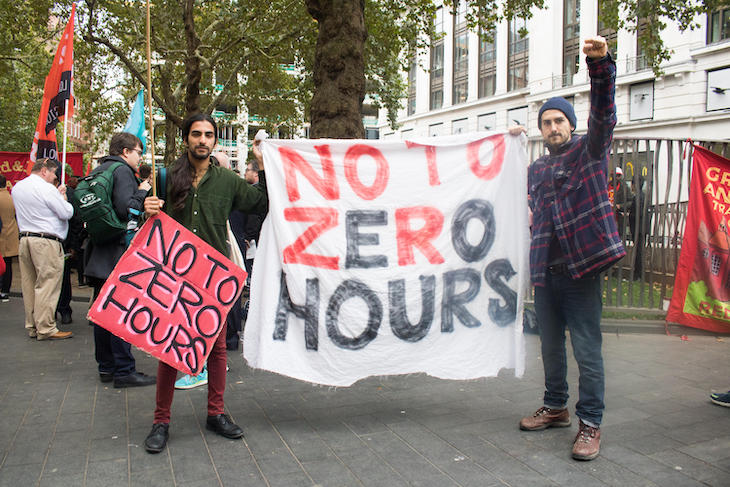Deputy Prime Minister Angela Rayner is set to unveil her workers’ rights bill this week – and ‘exploitative’ zero-hour contracts are in the firing line. But has Labour actually stopped to ask workers what they think? They might be surprised by what they hear: a survey of over 1,000 young people has found that an overwhelming majority (75 per cent) of those in precarious work were satisfied with their working conditions while only 24 per cent were not.
It sounds counter-intuitive; happy with no job security, low status work, shifts cancelled at short notice? Satisfied with lower wages and significantly higher turnover rates? And yet young people do seem keen on these roles: more than 558,000 young people in the country are on zero-hour contracts.
It sounds counter-intuitive; happy with no job security?
The reality is that ‘micro jobs’ – whether that means working as a waitress, warehouse operative, or a driver – attract young people because they can be useful stepping stone to later careers. Charities that work with the unemployed report that for young people who feel under-skilled or overwhelmed, these casual contracts make the difference between holding down a job and staying out of the labour market altogether.
For a young person under pressure to balance work, studies, contributing to their parents’ household budget (42 per cent of 15-to-34 year olds live at home) a job ‘with no strings attached’ feels less intimidating than a position that requires a lengthy and painstaking application process. This is especially true of those raised in families where no one works. Parents out of the habit of searching for a job won’t be able to steer their children through an alien recruitment process that can involve interviews, CV writing, past references.
For some young people, casual contracts offer a chance to train on the job; for others, they can fit into an existing and demanding schedule. Tellingly, even when fixed hour positions come up within the firm they are employed by, zero hour contract workers don’t always apply for equivalent fixed-hour positions within the same firm when vacancies come up. Has Labour stopped to ask why?
The truth is that those who have been unemployed, or come from disadvantaged backgrounds, often see flexible jobs as a more manageable commitment to entry and re-entry than starting instantly at five full days a week.
Zero-hour contracts can also work well for businesses. Staff can be hired quickly to fill temporary staff absences and cover sudden increased demand for products or services. When the workforce is increasingly aged, unwell and taking on caring responsibilities, someone willing to work under ‘flexible’ conditions is hugely welcome. Youthful energy is just what employers – and the wider economy – need to kickstart a more prosperous future.
Cracking down on zero-hour contracts sounds compassionate and useful in polishing Labour’s ‘workers’ party’ credentials. But a ban risks being performative, a move calculated to play well to an audience of card-carrying union members, rather than a practical policy that will boost our economy. Young workers are voting with their feet: many are happy to apply for zero hour contract jobs. Employers are saying they cherish the flexibility that a casual contract ensures them. Both these groups are key to checking our economic inactivity: maybe it’s time to listen to them?







Comments